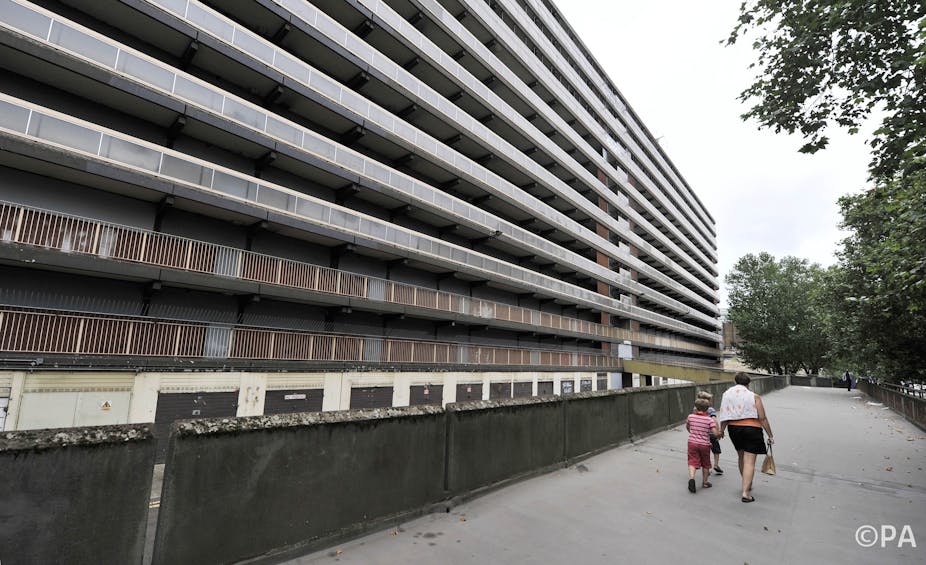For decades, child-care advice claimed that motherhood was a natural quality: the task of the parenting expert, it was claimed, was to help mothers to realise their “natural” mothering potential. In practice, of course, it was never that simple, with some mothers always castigated for apparently lacking that “natural” ability.
There is a long history of attributing failures of all kinds, from school failure to delinquency to mental illness, to “bad” mothering. But in recent years, we have witnessed the rise of the explicit claim that parenthood (because what was called “mothering” has now been extended to include fathers, even if mothers continue to do most of the childcare) can be taught.
From Channel 4’s Supernanny to policy initiatives like the Troubled Families programme, teaching parents how to parent is one of the hot topics of our time.
Bringing up children is incredibly complex, but for the purpose of political soundbites it’s spoken of in very simplistic terms. Despite there being scant evidence of a direct causal relationship between parenting behaviour and child outcomes, the idea is extremely seductive; it promises change to the social fabric without drawing attention to the deeper social inequalities that actually underlie it.
Make them better
In one glaring example, the think tank Demos’s 2009 report Building Character hinged on the idea that parenting held the key to social mobility: “parents are the architects of a fairer society”, it proclaimed.
Parents are now tasked not just with loving their children, providing care and stability and the rest, but with improving the landscape of our whole society. This logic has underpinned various policies and government-sponsored initiatives to “improve” working-class parents, including the current Troubled Families programme spearheaded by Louise Casey.
Leaving aside the obvious methodological problems with the claims made about the extent and character of (and solutions to) whatever “trouble” means in this context, the Troubled Families initiative rests on the assumption that the problem lies in a lack of skills, rather than a lack of money, time and resources – and that it is the craft of parenting, rather than social inequality, that really matters.
The recent policy fad for neurobiology has only entrenched these assumptions, even as its claims are based on spurious evidence and highly contentious “findings”. The success of the idea that children are neurologically shaped primarily by their parents is based less on an understanding of the (very new and unclear) neuroscience itself, and more on a fit with a popular and commonplace narrative.
In this narrative, a child’s “outcomes” – her character, her success or failure, her adult life – are all within the gift of the parents. The assumption is that parents can shape and control the lives of their children and thus bring forth responsible citizens. But more than that, it rests on the reverse logic of examining successful adult lives and extrapolating from them.
In effect, the logic is that since middle-class people are successful, they must have benefited from better parenting. The privileges that make up middle-classness, on the other hand, are kept firmly hidden.
Guaranteeing happiness
There is little room here for a deep discussion of our deeply classed education system, or of unequal access to economic, cultural and social capital. A wealth of educational research has shown that social class plays a crucial role in educational achievement.
Working-class parents are just as likely as middle-class parents to care about their children’s education, but they are less likely to be able to trade up to the “best” catchment areas, to insist the school treats their child as unique, or to buy education in the form of private school or additional privately-bought tuition.
Seeing the process of social change as involving little more than a change in “parenting culture” reduces social inequality to an output of individual psychology and performance, rather than in the social world’s structured inequalities.
This is not to suggest that middle-class women are immune from the pressure to raise their children in particular ways; what sociologists have termed “intensive parenting” and “concerted cultivation”.
These terms describe the financially, emotionally and time-consuming practices of making sure children’s future happiness and success is “guaranteed”. Importantly, the right (high) input of high-quality parenting is not only supposedly crucial to children’s outcomes; it also determines how we perceive their parents, and especially mothers, whose social standing is contingent on their child-rearing accomplishments.
Speak no evil
Of course, nobody is suggesting that parents ought to be able to treat their children badly; parenting undeniably carries a moral, emotional and political responsibility. But recent initiatives such as the Troubled Families programme have heaped new kinds of responsibility on working-class parents in particular and only continue to present the inequalities they are forced to negotiate as their own fault.
Any explicit reference to the structural inequalities of class – as opposed to the supposed deficits and failings of those lower down the scale – is notable by its absence from the official debates.
When people are encouraged to think and speak about themselves solely as individual, self-regulating, entrepreneurial beings, the class system disappears from the picture. To acknowledge it would mean acknowledging social and economic privilege – and in turn exposing the lack of moral justification for that privilege.
Not only that: when we more closely examine the skills and attributes deemed necessary to succeed in our supposed meritocracy, we find that we all remain hostage to the largely unfounded claims of middle-class judges – whose self-proclaimed “merits” are treated as if they were universally and naturally valid.

